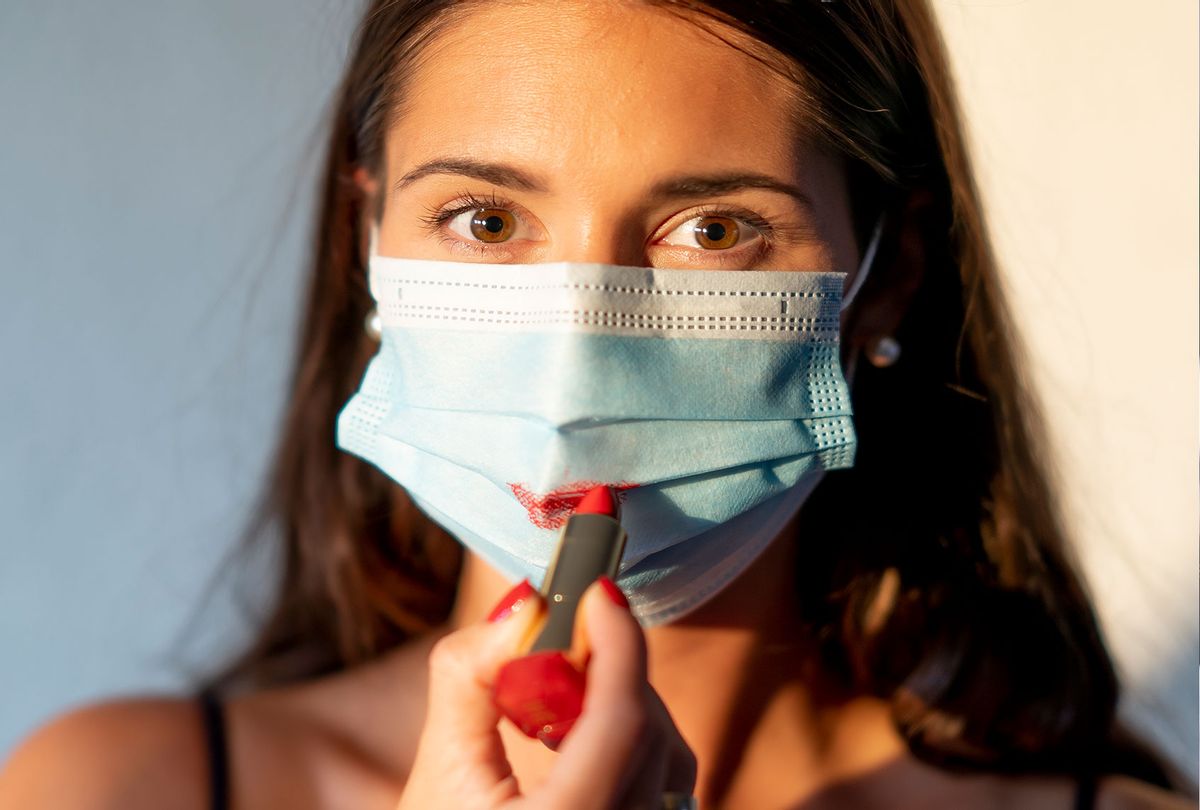Though beauty is relative, beauty bias is a real thing, measurable particularly in the service industry — where workers perceived as attractive are far more likely to get higher tips and better treatment, while those perceived as not attractive experience the opposite. Countless studies have borne this out.
Yet since the start of the pandemic, most service workers have work masks to protect against COVID-19, obscuring a good half of their faces. Recently, researchers saw this state of affairs as an interesting opportunity to test whether the corollary to beauty bias is true — meaning, does obscuring everyone's faces put service workers on more equal footing in terms of treatment and tipping?
Indeed, that is precisely the conclusion of a recent study in the International Journal of Hospitality that was led by researchers from Washington State University and two Chinese schools, Shanghai Business School and Southwestern University of Finance and Economics. In a pair of surveys, over a thousand Chinese participants took online surveys through a professional survey platform. They were then asked to imagine that they were interacting with front desk workers at quality hotels based on photographs representing the hypothetical employees. Those images were manipulated to show varying degrees of facial symmetry that scientists have previously found correspond with conventional perceptions of physical attractiveness.
The researchers found that, instead of attractive employees receiving higher customer scores from hypothetical Chinese customers than average-looking ones, wearing protective masks minimized how attractiveness influenced customer satisfaction. Average looking employees were deemed more attractive because the masks covered so much of their faces, and also received higher customer service scores. For attractive male employees, the masks did not change customers' perception of them, but for female employees the masks made customers think they were less attractive — and not as good at their jobs.
"Facemasks can enhance the customers perceived attractiveness of average-looking employees, and thus customer satisfaction," the authors explained in the highlights.
Want more health and science stories in your inbox? Subscribe to Salon's weekly newsletter The Vulgar Scientist.
Because Chinese culture is different from American culture, these findings do not automatically carry over to residents of the United States. However, previous American studies have shown that beauty bias manifests in ways that correlate with these findings. Indeed, a 2015 study from the Journal of Economic Psychology found similar examples of beauty bias in Virginia. Five restaurants were selected, and then customers were asked to assess the performance of their servers, both in terms of productivity and attractiveness. Those researchers learned that attractive servers received an average of $1261 more per year in tips than unattractive ones, with the main driver of the trend being attractive females receiving higher tips from female customers than their unattractive female counterparts.
So what accounts for why we treat attractive people better? The authors of the 2015 study identify several causes of customer biases against people considered unattractive. One of them is "taste-based discrimination" — meaning, the notion that when customers express preference for certain employers based on their individual taste (such as for someone's appearance), it has a ripple effect which impacts an employee's ability to be perceived as successful at their job in ways that are beyond that employee's control.
The authors attribute attractive female waiters being tipped more than unattractive ones to taste-based discrimination among female customers, but added that other factors also drive beauty bias among customers. These include stereotypes about how attractiveness corresponds to "intelligence, competence, leadership skills, and health" and how being attractive can give someone more confidence and better negotiation skills.
It is difficult to imagine how this can be changed, at least on the customer end. Artificial intelligence is being developed to enable employers to break through their own beauty bias when hiring, since employment discrimination is also a serious problem for people considered less attractive. Given that modern economics depends on prioritizing customer preferences over social justice considerations, it has been notoriously difficult for society to find ways to get around this particular bias.
Except, of courses, when all employees are forced to wear protective masks.
Read more on beauty bias:



Shares